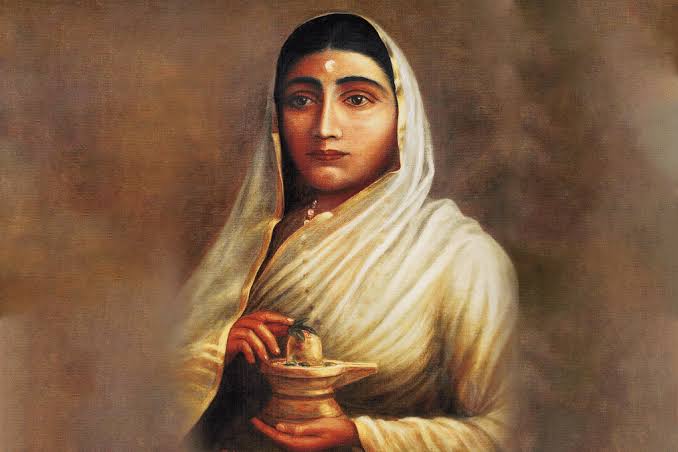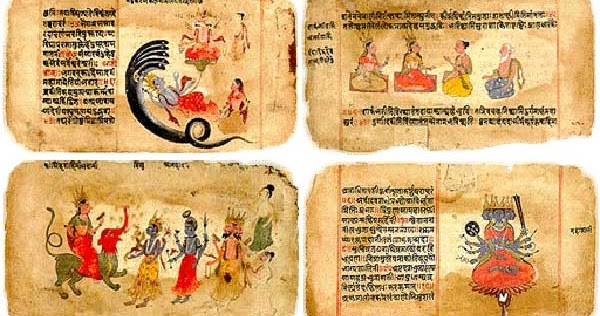By Dr. Bhupendra Kumar
In India, the tradition of worshiping and honoring women as goddesses has existed since ancient times. Evidence of considering the Earth as Mother Goddess can be found in seals from the Indus Valley Civilization, one of which depicts a plant growing from a woman’s womb. Throughout Indian history, from ancient to modern times, many women have been celebrated for various qualities—bravery, intelligence, beauty, valor, and more—many of whom made significant contributions to governance. The power of womanhood has manifested in many forms, among which "Devi Ahilyabai Holkar" holds a prominent place.
In the 18th century, when the power rested largely in the hands of men and the Peshwas were at the peak of their authority, Ahilyabai Holkar emerged as a woman who won the hearts of all through her administration and became renowned throughout India. Despite being a woman, her welfare-oriented governance was unparalleled and remains a guiding example even for today's rulers.
This essay aims to present the achievements of Ahilyabai Holkar’s administration, especially the welfare schemes she implemented in the interest of Khandesh and Malwa.
In the 18th century, the Marathas ruled Maharashtra and had extended their influence across northern India. Many royal families operated under the Peshwas, among them the Holkar family. The head of this family was Malharrao Holkar, who made Indore (in present-day Madhya Pradesh) his capital. It was in this family that Devi Ahilyabai rose to prominence, a name now remembered with pride throughout India.
Ahilyadevi entered the Holkar family as the wife of Khanderao Holkar, the son of Malharrao Holkar. When the reins of the Holkar dynasty came into her hands, the circumstances were extremely challenging. Still, she did not lose heart and continued her work diligently, all the while managing the administration effectively. Through her governance, she implemented numerous public welfare schemes and earned a distinguished place in Indian history.
Ahilyadevi’s husband, Khanderao, died in 1754 during the Battle of Kumbheri. The right to rule then should have gone to their son, Male Rao, but he was incapable of handling state affairs. Thus, the responsibility of governance fell upon Ahilyadevi and her father-in-law, Malharrao Holkar. From 1751 to 1756, both jointly managed the administration effectively.
On May 20, 1766, Malharrao passed away, after which Male Rao officially became the ruler. However, due to his incompetence, actual control remained in Ahilyadevi’s hands. A tragic event followed—Male Rao died on March 27, 1767—which left Ahilyadevi grief-stricken.
With no heir left in the Holkar family and reeling from the loss of her son, Ahilyadevi’s enemies tried to take advantage of the situation. Upon learning of this, she overcame her sorrow and sought permission from the Peshwas to officially take over state affairs. The Peshwas reinstated her authority to govern.
*The Beginning of Administration from Maheshwar*
After receiving permission from the Peshwas, Ahilyadevi began overseeing civil administration, while Tukojirao Holkar was given charge of military affairs. Thus, Ahilyadevi became the de facto ruler of the state.
Having lost her husband, son, and father-in-law in Indore, she no longer felt emotionally connected to the city. She decided to establish a new capital and found the village of Maheshwar, located on the banks of the Narmada River, ideal for its security. She relocated there and began ruling from Maheshwar, which became the center of her governance.
*Key Features of Ahilyadevi's Administrative Reforms:*
Gangoba Tatya, the former Dewan (Prime Minister) of Malharrao Holkar, had extensive knowledge of the state's wealth. Driven by greed, he attempted to attack Indore with support from Raghunathrao. Ahilyadevi wrote letters to other Maratha leaders and sought their help. She also informed Peshwa Madhavrao of Raghunathrao's actions and made it clear that if he marched on Indore, it would mean war. Realizing her resolve, Raghunathrao backed down.
Thus, with courage and swift action, Ahilyadevi prevented attacks by Gangoba Tatya and Raghunathrao, protecting her kingdom.
Once she assumed real power, Ahilyadevi established Maheshwar as the capital and began reorganizing the government. She appointed Yashwant as the representative to the Pune court, and another man named Vitthal Ganesh to assist him. They reported regularly to Ahilyadevi.
Revenue was primarily generated from agriculture. Before her reign, tax collection lacked an effective system. Realizing this, she reformed the tax system by appointing a special officer called Kamavisdar to oversee it.
*Justice for the People*
To address the people's daily issues, Ahilyadevi held court sessions herself, appearing as a symbol of justice. She believed in fair justice, even punishing close relatives when necessary. Most disputes were resolved through local councils (panchayats), but if injustice was committed, she never hesitated to order the strictest punishment.
Ahilyadevi was truly a ruler devoted to public welfare. She believed that her role as a ruler was to serve the people. During natural disasters or crises, she would immediately provide food and money to those affected.
Despite facing extreme adversities—including the deaths of her son and father-in-law—she managed to govern effectively. She was well-versed in fort administration, ran a fair judicial system, and considered providing basic amenities to her people a duty. Eliminating injustice and oppression was her life's mission.
Thus, it can be said that Ahilyadevi Holkar devoted her entire life to the betterment of society.






